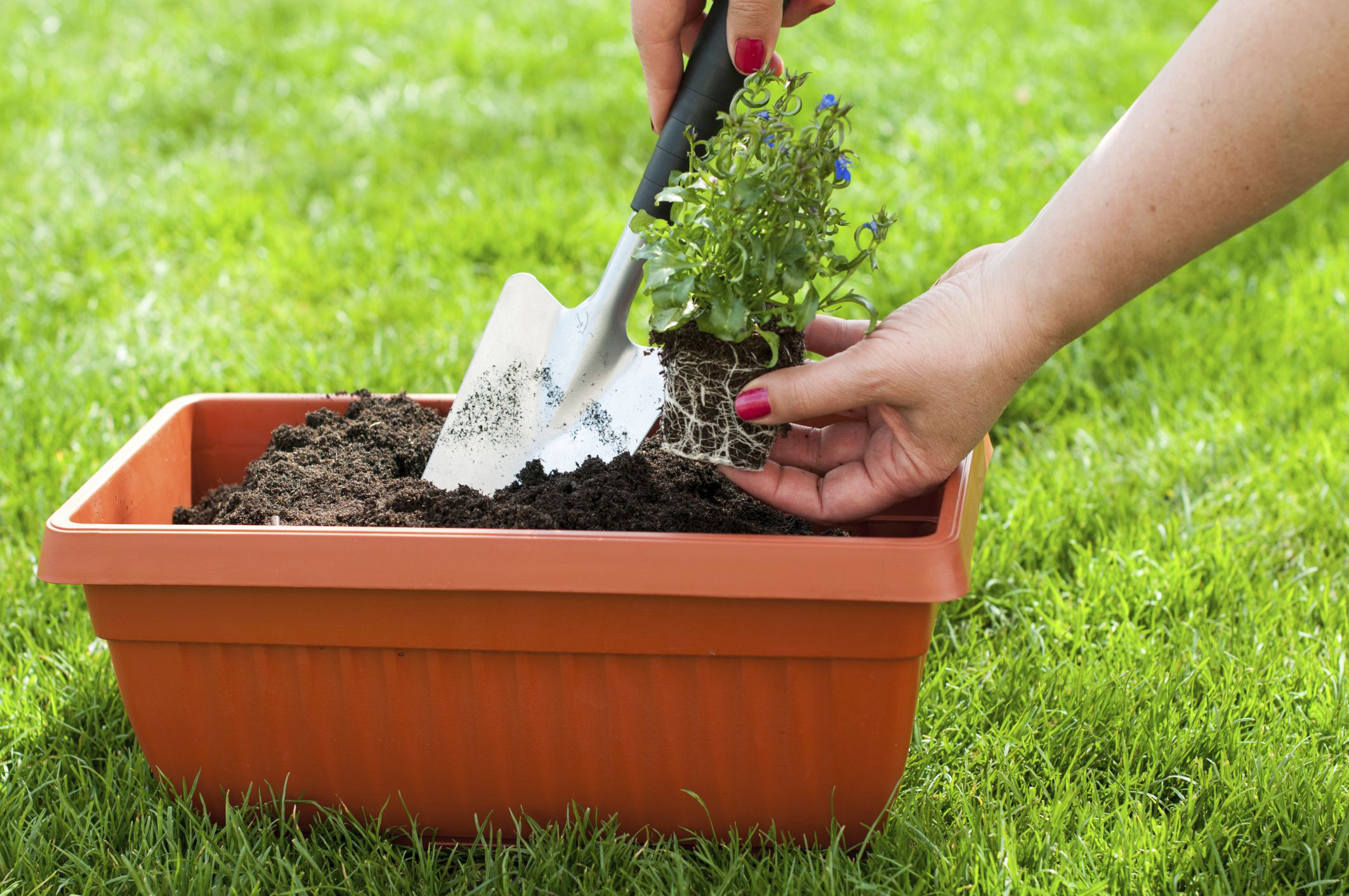Don’t use any old compost
Some garden centres are selling old compost which could affect how well plants grow, according to a new report. Hannah Stephenson investigates
Bags of old compost are still being sold in garden centres and DIY stores, with no indication of the date of production on the packaging, according to a report in the latest edition of Which? Gardening, the Consumers’ Association magazine.
The report follows up its findings last June that old stock was on sale, which manufacturers said was down to the previous year’s poor summer. Yet the problem is still occurring, with researchers having found old stock of B&Q, Miracle-Gro, J Arthur Bower’s and Westland compost being sold again.
Compost doesn’t normally have a sell-by or use-by date on it, so consumers may have trouble distinguishing old stock from new.
But just how effective is old compost? Which? Gardening claims that the nutrients in compost can degrade over time, so using a compost that is more than a year or two old could prevent plants from thriving.
Guy Barter, chief horticultural adviser with the RHS, says that certainly organic potting compost deteriorates with time.
“Any organic fertilisers incorporated in the compost will break down over time and the soluble nutrients will become too salty and strong which could damage the roots of young plants.
“Potting composts have been formulated to have lots of air in them because roots need to breathe, just like humans. As the compost ages, the air space declines and roots find it difficult to grow because of lack of air in the compost.”
He says non-organic composts are less likely to be affected by age because the nutrients will almost certainly be in the form of chemicals, which aren’t broken down so quickly.
Which? Gardening wants manufacturers to make it easier for consumers to see when the compost they buy was made – for example by printing a production date on the packaging. When it suggested this to the industry body Growing Media Association (GMA), it said: “GMA members believe they manage stock well. If consumers are dissatisfied with the quality of their compost, they should take it up with the retailer.”
David Coop, head of technical development for Westland Horticulture, says: “Ideally, we would advise gardeners to use compost within the season of purchase.
“However, we are confident that Westland compost would be stable and consistent the following year if stored correctly in a cool, dry place, away from direct sunshine. This is because we use ingredients such as peat and our patented West+ wood fibre in our composts, which are stable, consistent and reliable products, which don’t break down quickly.”
A spokesman for Sinclair Horticulture, which manufactures J Arthur Bower’s compost, says: “Sinclair Horticulture’s retail composts are formulated to have a long shelf-life. Any deterioration is gradual and the product remains efficacious for at least two years as long as it is stored well (i.e fully wrapped).
“We encourage garden centres to rotate their stock but we have no control over this. Should the consumer buy discounted older compost, we would advise them to keep an eye on their plants and be prepared to start their fertiliser regime slightly earlier if their plants show any signs of nutrient deficiency.”
However, Barter notes that it would be difficult and costly for gardeners to prove that the compost they used had caused the poor performance of plants. They’d probably need to employ a specialist company to analyse the compost.
“When you see compost for sale, you assume it will do what it says on the bag. But if it’s been in a retail outlet for a long time, it may have deteriorated.”
So, what should we be looking for when buying what we deem to be fresh compost?
“Go to outlets which have a high turnover where there doesn’t appear to be old stock,” Barter advises. “If the bags are looking stained or weather-worn, perhaps you should think about shopping elsewhere.”
When you open the bag, the contents should feel fluffy and fibrous, not wet and heavy. Compost may seem hard because it’s been stacked on a pallet but it should fluff up pretty easily.
However, it is possible to use old compost as an effective soil improver when winter digging or just to use as a mulch to conserve moisture and suppress weeds, says Barter, so you could bag a bargain if you see any old stock in the sale.
And if anyone has a partially-used bag of compost left over from a previous year, mix it 50:50 with fresh compost and use it to raise young bedding plants or young vegetables, he advises.
:: The full Consumers’ Association report is in the June issue of Which? Gardening. Sign up to Which? for a one-month trial for £1 and get access to all its product reviews, test scores and Best Buy or Don’t Buy ratings. Visit www.which.co.uk/signup for more information.
Latest posts by Sally - Silversurfer's Editor (see all)
- Do you like the new Jaguar rebrand? - November 21, 2024
- Christmas Decorations Masterclass: Make your own Festive Wreath, Garland and Flower Centrepieces - November 21, 2024
- Finding warmth in cold days - November 21, 2024
- Fall in love with Norfolk Hideaways - November 20, 2024
- Would you prefer a cup of tea or a gin & tonic? - November 19, 2024





















